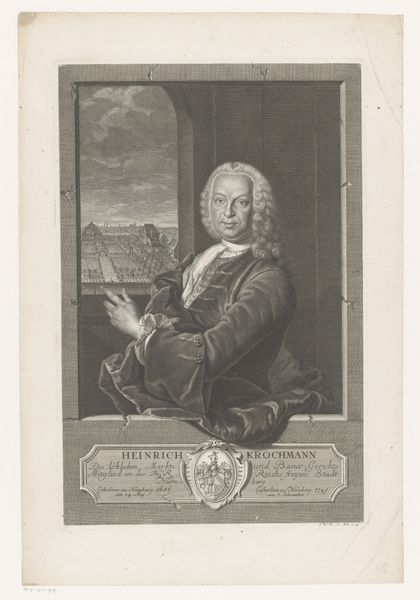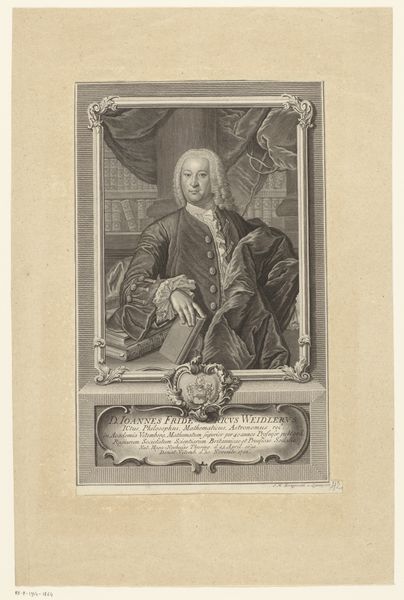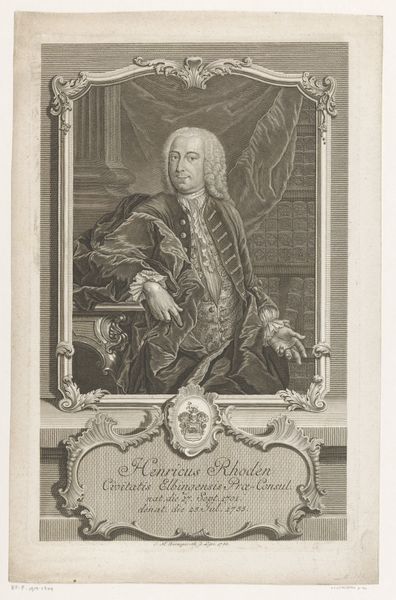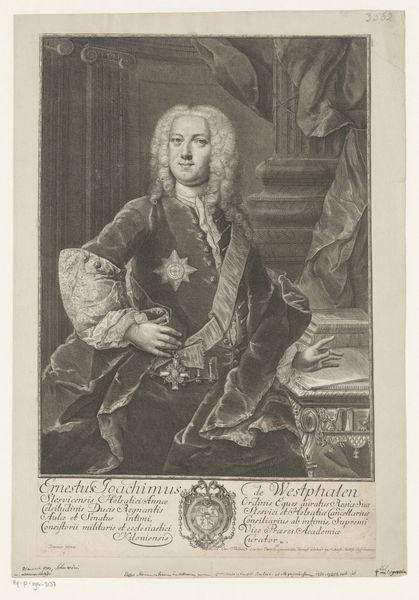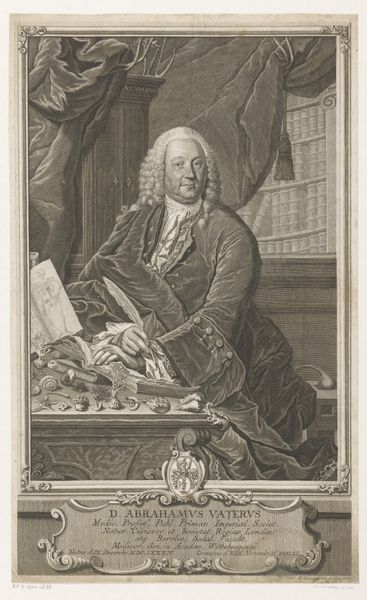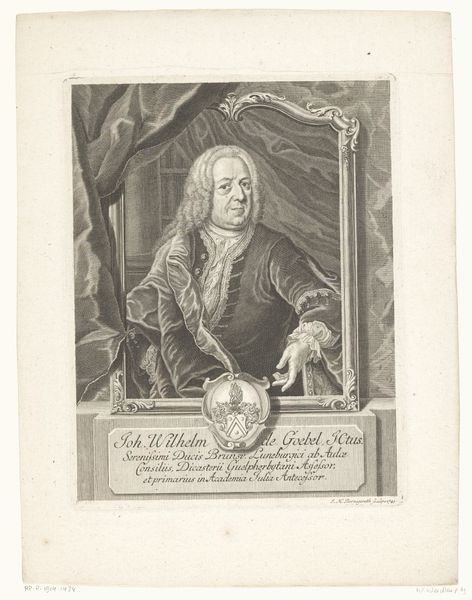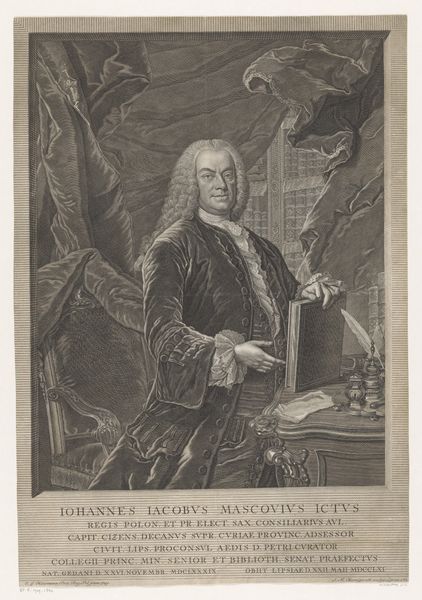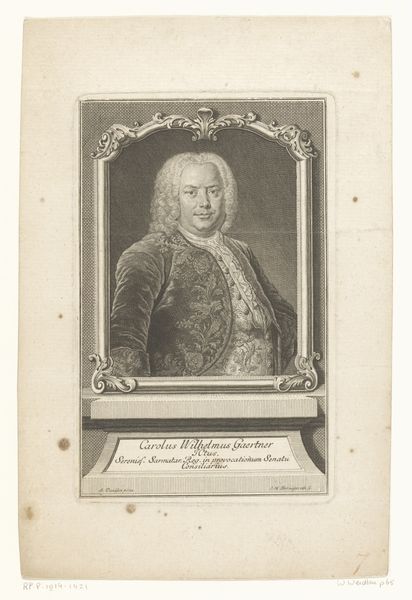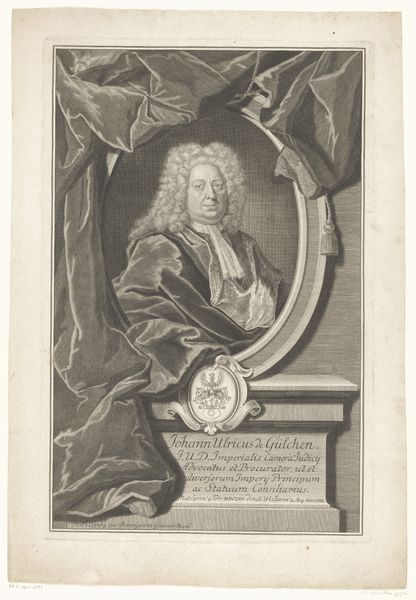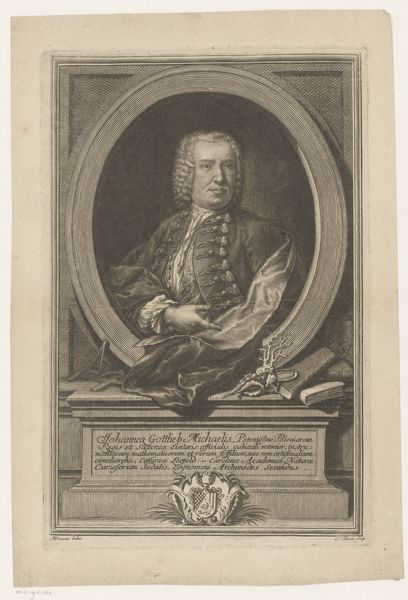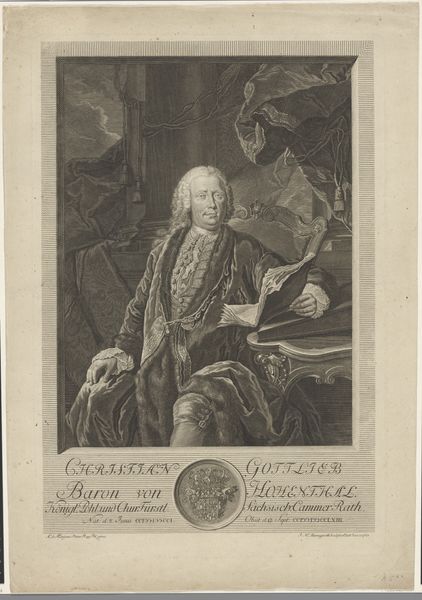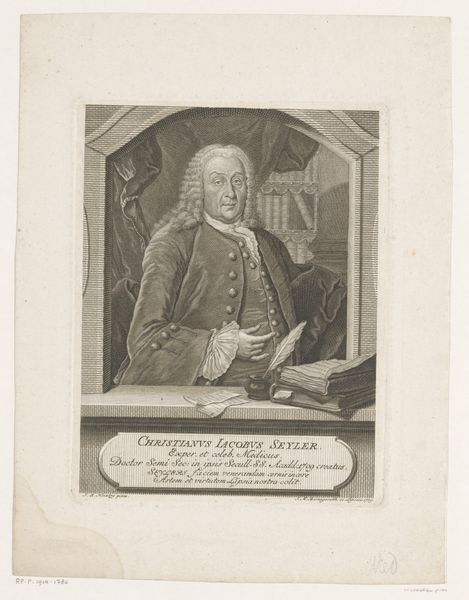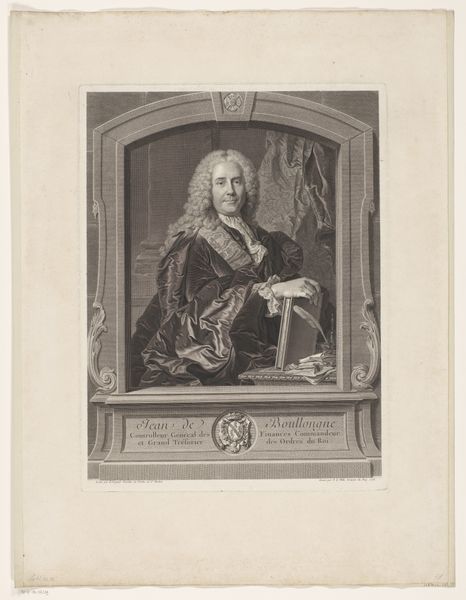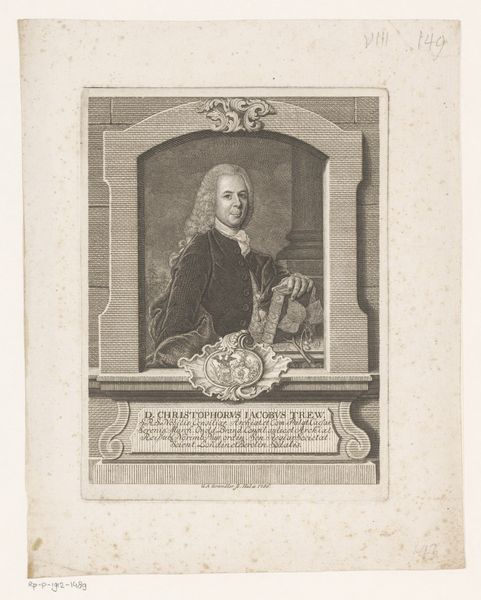
engraving
#
portrait
#
baroque
#
engraving
Dimensions: height 495 mm, width 340 mm
Copyright: Rijks Museum: Open Domain
This is Johann Martin Bernigeroth's portrait of Johann Florens Rivinus, made sometime in the 18th century. It is an engraving, a printmaking technique that involves incising an image onto a metal plate, which is then inked and pressed onto paper. Consider the labor involved in this process. Bernigeroth would have painstakingly carved the image in reverse, line by line, using specialized tools called burins. The precision required is extraordinary. The varying depths and densities of the lines create a full range of tones, from the velvety blacks of Rivinus's coat to the subtle gradations of his face. The textures of the wig, the drapery, and the books in the background, everything is meticulously rendered. Engraving was a highly skilled and valued craft, yet it also served the broader demands of disseminating information and imagery in the age of early capitalism. Prints like this one allowed for the reproduction and circulation of portraits, contributing to the construction of public figures and the spread of knowledge. It’s a great example of how craft and industry are deeply intertwined.
Comments
No comments
Be the first to comment and join the conversation on the ultimate creative platform.
